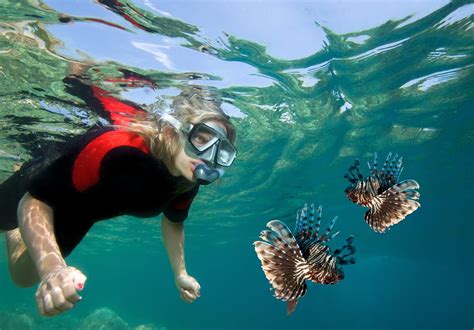Embark on an extraordinary journey into the enigmatic world of marine life and discover the myriad avenues a Marine Biology degree unlocks. With its interdisciplinary nature, this degree empowers you to explore the depths of scientific inquiry, conservation, and environmental stewardship.

Research and Academia
Research Scientist
Unravel the mysteries of the underwater realm as a Research Scientist. Engage in cutting-edge studies, analyzing marine ecosystems, biodiversity, and the impact of human activities.
Marine Biologist
Specialize in the study of marine organisms, their behavior, ecology, and interactions. Conduct research to inform conservation efforts, develop novel technologies, and unravel the processes governing marine ecosystems.
Professor
Inspire the next generation of marine enthusiasts as a Professor. Teach courses in marine biology, supervise student research, and conduct your own investigations, expanding our understanding of marine life.
Conservation and Environmental Protection
Conservation Biologist
Become a champion for marine wildlife. Apply your knowledge to develop conservation strategies, protect endangered species, and manage ocean resources sustainably.
Environmental Consultant
Provide expert advice to governments, industries, and non-profit organizations on environmental impact assessments, pollution control, and ecosystem management.
Aquarium and Zoo Curator
Oversee the care, research, and exhibition of marine animals at aquariums and zoos. Foster public awareness of marine conservation and promote responsible stewardship.
Education and Outreach
Science Educator
Ignite a passion for marine biology in students through captivating presentations, interactive hands-on activities, and field trips. Share the wonders of the underwater world and inspire future generations.
Science Writer
Craft engaging and informative articles, books, and documentaries that communicate the importance of marine life and conservation. Bridge the gap between science and the public.
Museum Docent
Engage visitors with the wonders of marine biology as a Museum Docent. Guide tours, lead educational programs, and share your knowledge of marine ecosystems.
Industry and Government
Aquaculture Manager
Oversee the production of marine organisms for food, pharmaceuticals, and research. Develop sustainable aquaculture practices and ensure the responsible use of marine resources.
Fisheries Biologist
Study fish populations, habitats, and life cycles. Advise on fishery management strategies to ensure sustainable harvests and preserve marine ecosystems.
Government Scientist
Serve as a scientific advisor to government agencies, providing expertise on marine conservation, policy development, and regulation.
Innovative and Emerging Applications
Biotechnologist
Unlock the hidden potential of marine organisms. Develop innovative biotechnological applications, such as novel pharmaceuticals, biofuels, and biomaterials.
Marine Engineer
Design and build structures in and around marine environments, including offshore platforms, underwater pipelines, and renewable energy systems.
Science Policymaker
Influencing environmental policies and decision-making. Analyze scientific data, engage with stakeholders, and advocate for marine conservation and sustainable practices.
Effective Strategies
- Network: Attend conferences, join professional organizations, and connect with marine professionals to expand your job prospects.
- Gain experience: Participate in internships, volunteer in research labs, and conduct independent projects to build your skills and knowledge.
- Specialize: Consider pursuing a graduate degree or certification in a specialized area of marine biology, such as marine ecology, fisheries science, or conservation biology.
- Be adaptable: Embrace the interdisciplinary nature of marine biology and be willing to explore new opportunities beyond traditional job roles.
Tips and Tricks
- Sharpen your communication skills: Write clearly and persuasively. Effectively present your research and ideas to diverse audiences.
- Build a strong foundation in science and technology: Maintain a strong understanding of marine biology, statistics, and scientific methods. Stay updated with technological advancements in underwater research.
- Develop critical thinking and problem-solving skills: Analyze data, solve problems, and make informed decisions. Think outside the box and challenge conventional wisdom.
- Foster collaborations: Collaborate with scientists from diverse disciplines, including engineers, ecologists, and policymakers, to broaden your perspectives and enhance your research impact.
Common Mistakes to Avoid
- Assuming marine biology is limited to scuba diving and observing marine life: While field research is an important aspect, the field extends far beyond underwater exploration.
- Not pursuing internships or research experience: Hands-on experience is essential for developing practical skills and building your professional network.
- Neglecting communication and outreach: Effectively communicating your research findings and engaging the public are crucial for raising awareness and inspiring conservation.
- Focusing solely on popular marine species: While studying charismatic species like dolphins and sharks is valuable, it’s essential to recognize the importance of all marine organisms, including invertebrates and microorganisms.
